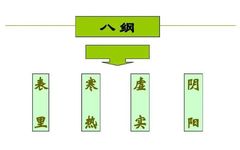Traditional Chinese Medicine (TCM) expert shares health knowledge with you
Click below to↓↓↓ follow for free
The Eight Principles of Diagnosis (Ba Gang Bian Zheng) refer to the eight categories of syndromes: Yin and Yang, Deficiency and Excess, Exterior and Interior, Cold and Heat. This is the fundamental framework of TCM diagnosis. The saying goes, “To treat diseases, one must understand the eight principles: Yin, Yang, Deficiency, Excess, Exterior, Interior, Cold, and Heat. If these principles are not distinguished, it can lead to fatal consequences.” Yin and Yang serve as the overarching principles that encompass the other six aspects. The Exterior, Heat, and Excess are associated with Yang, while the Interior, Cold, and Deficiency are associated with Yin. The key points of the Eight Principles of Diagnosis are thus referred to as “Two Principles and Six Essentials.”
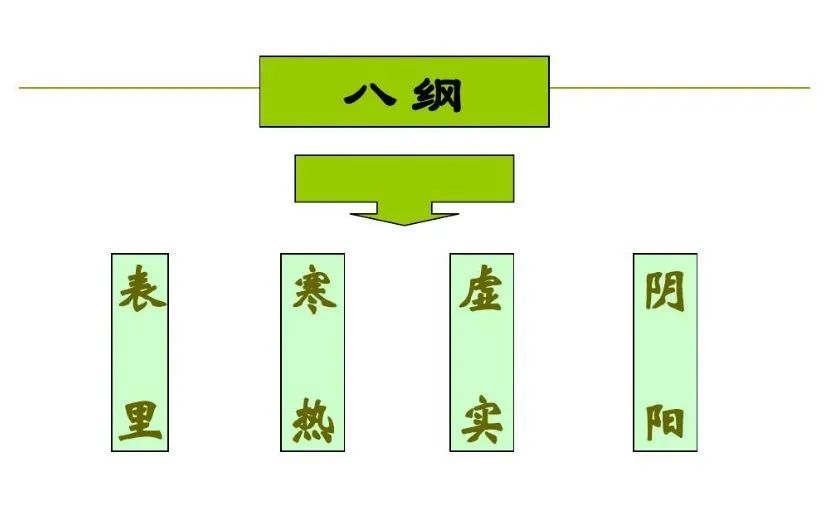
Yin Syndrome: Any illness that is located in the interior, in the blood, is categorized as Deficiency, Cold, and is characterized by insufficient Zheng Qi (Vital Energy), with the body’s response often showing signs of decline. The etiology and pathogenesis include aging, weakness, prolonged illness, or the invasion of external pathogens into the internal organs, leading to weakened Zheng Qi and an excess of Yin. Yang Syndrome: Any illness that is located in the exterior, in the Qi, is categorized as Excess, Heat, and is characterized by intact Zheng Qi, with the body’s response often showing signs of excess. The etiology and pathogenesis include the invasion of pathogenic Qi, where the pathogenic factor is strong and Zheng Qi is also strong, leading to a conflict between Zheng and Xie (pathogenic) Qi, resulting in Yin Deficiency and Yang Excess.
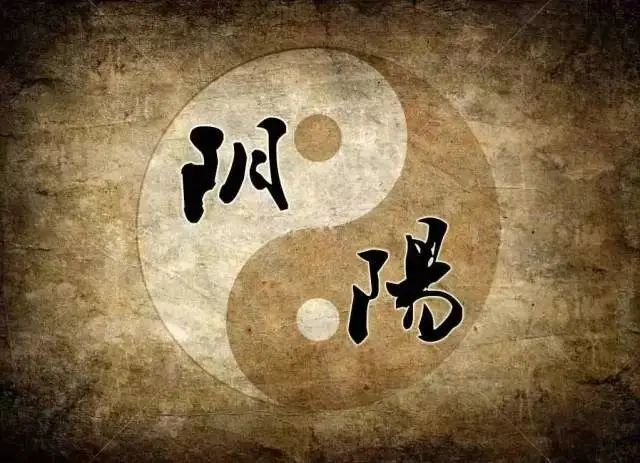
TCM theory states, “Yin and Yang are mutually rooted; Yin is the root of Yang, and Yang is the foundation of Yin.” “To effectively tonify Yang, one must seek Yang within Yin, allowing Yang to be supported by Yin for boundless transformation; to effectively tonify Yin, one must seek Yin within Yang, allowing Yin to be elevated by Yang.” This means that Yin and Yang are not only oppositional but also unified, existing within a defined framework while also transforming into one another.
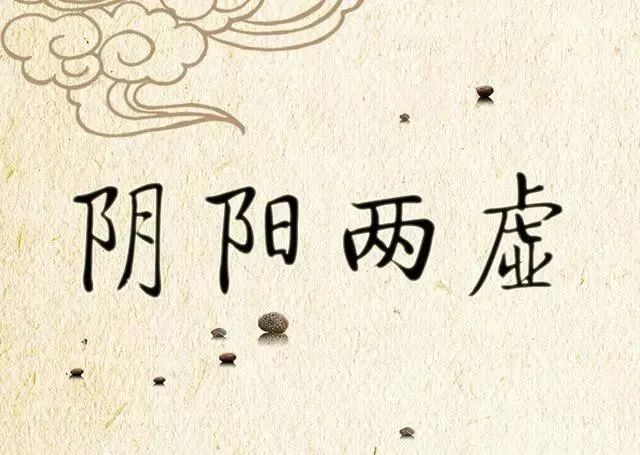
Yin Deficiency (Yang Deficiency) typically presents with symptoms such as aversion to cold, lack of thirst, weak voice, loose stools, clear and frequent urination, pale tongue with white coating, and thin, weak pulse. Yang Deficiency (Yin Deficiency) typically presents with symptoms such as heat in the palms and soles, dry mouth and throat, loud voice, constipation, short and red urination, red tongue with yellow coating, and a large, slippery, rapid pulse.
Both Yin and Yang Deficiency indicate a condition where both Yin and Yang are deficient, primarily characterized by aversion to both cold and heat, with a particular aversion to cold in winter and to heat in summer. This is a manifestation of Yin-Yang imbalance or dual deficiency. The etiology and pathogenesis include five aspects: weak constitution, excessive fatigue, irregular diet, prolonged illness, and misdiagnosis or mistreatment.
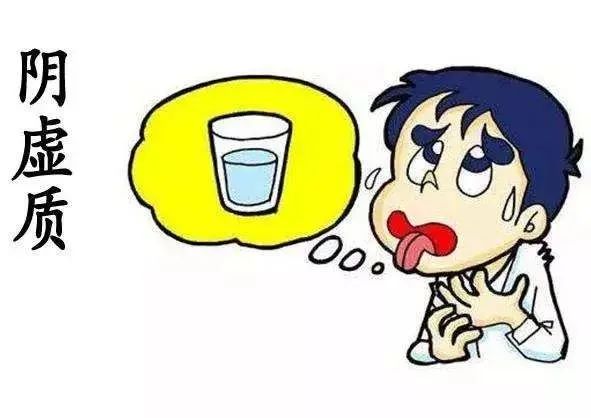
For Yin Deficiency, treatment should focus on nourishing Yin fluids, while for Yang Deficiency, treatment should focus on warming and tonifying Kidney Yang. For those with both Yin and Yang Deficiency, a combined approach of nourishing both Yin and Yang is recommended, along with methods to nourish Yin and warm Yang, and vice versa, while paying attention to the need to first regulate the Spleen and Stomach if they are weak.
Individuals with a Yin Deficiency constitution should focus on nourishing Yin fluids and may add a small amount of Yang tonics. Foods that nourish Kidney Yin include wheat, millet, black sesame, glutinous rice, mung beans, tofu, lily bulbs, black fungus, white fungus, tomatoes, spinach, papaya, honey, water chestnuts, figs, pomegranates, apples, pears, mulberries, peaches, sugarcane, and rock candy. Meats and dairy products that are suitable include pork, pig skin, duck, turtle, black fish, squid, crab, jellyfish, sea cucumber, oysters, and clams, which are all cool in nature and have Yin-nourishing properties. Herbal medicines that can be selected include those that nourish Yin, clear heat, and tonify the liver and kidneys, such as Nu Zhen Zi (Ligustrum lucidum), Shan Zhu Yu (Cornus officinalis), Wu Wei Zi (Schisandra chinensis), Han Lian Cao (Eclipta prostrata), Sha Shen (Glehnia littoralis), Tian Dong (Asparagus cochinchinensis), Mai Dong (Ophiopogon japonicus), Shi Hu (Dendrobium), Yu Zhu (Polygonatum odoratum), and Gou Qi Zi (Lycium barbarum). Individuals with Yin Deficiency and excess heat should avoid spicy and warming foods such as Sichuan pepper, chili, fennel, scallions, ginger, leeks, longan, lychee, walnuts, dog meat, and lamb; alcohol, coffee, and strong tea should also be avoided. During exercise, one should control sweating, as excessive sweating can deplete Yin fluids. It is important to maintain adequate sleep and a positive emotional state to preserve Yin energy.

Individuals with a Yang Deficiency constitution should consume more Yang-supporting foods, such as lamb, beef, dog meat, venison, hairtail fish, sparrow meat, chicken, yellow eel, pig stomach, shrimp, grass carp, ginger, scallions, garlic, leeks, okra, mustard, pepper, fennel, longan, lychee, lotus seeds, chestnuts, and walnuts. Herbal medicines that can be selected include those that warm and tonify the kidneys and liver, such as Lu Rong (Cervus nippon), Yin Yang Huo (Epimedium), Hai Gou Shen (Sea dog kidney), Ge Jie (Gecko), Dong Chong Xia Cao (Cordyceps), Ba Ji Tian (Morinda root), Gou Qi Zi (Lycium barbarum), Rou Cong Rong (Cistanche), Yi Zhi Ren (Alpinia oxyphylla), Tu Si Zi (Cuscuta), Du Zhong (Eucommia), Zi He Che (Placenta), and Sha Yuan Zi (Astragalus). It is important to avoid consuming raw or cold foods such as watermelon, bitter melon, winter melon, water spinach, Chinese cabbage, bamboo shoots, kelp, mung beans, nori, pears, and sugarcane. In autumn and winter, it is advisable to dress warmly, avoid staying up late, and consume warm foods to nourish Yang energy. In summer, one should avoid intense exercise to prevent excessive sweating, which can harm Yang, and should not indulge in cold drinks.
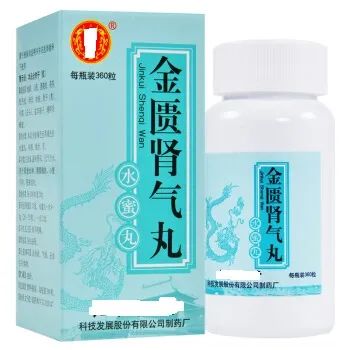
The selection of Chinese patent medicines should also be based on differential diagnosis. For example, early-stage hypertension is often characterized by Yin Deficiency and Yang Excess (red tongue and irritability), so Jin Gui Shen Qi Wan (Kidney Qi Pill) should not be taken; in later stages, some may present with Yang Deficiency (aversion to cold), thus Qi Ju Di Huang Wan (Lycium and Chrysanthemum Pill) is not suitable. Patients with coronary heart disease primarily present with chest Yang deficiency, and aromatic, Yang-opening, and orifice-opening medicines such as Xue Xin Su He Wan (Heart Yang Reviving Pill) are excellent for heart protection, but are not suitable for those with heart and kidney Yin Deficiency (red tongue and little fluid).
For those with Kidney Yin Deficiency and mild heat, Liu Wei Di Huang Wan (Six Flavor Rehmannia Pill) can be selected; for those with Yin Deficiency and excess heat, Zhi Bai Di Huang Wan (Anemarrhena and Rehmannia Pill) or Da Bu Yin Wan (Great Yin Tonifying Pill) can be selected. For oral ulcers caused by Yin Deficiency and excess heat, Kou Yan Qing Granules can be selected; for those with Kidney Yin Deficiency and blood deficiency, Gui Shao Di Huang Wan (Gui and Peony Pill) can be selected; for those with both liver and kidney Yin Deficiency accompanied by dizziness, vision loss, Qi Ju Di Huang Wan (Lycium and Chrysanthemum Pill) or Ming Mu Di Huang Wan (Vision Brightening Rehmannia Pill) can be selected; for those with severe Kidney Yin Deficiency without internal heat symptoms, Zuo Gui Wan (Left Return Pill) can be selected; for elderly patients with Kidney Deficiency-related tinnitus or deafness, Er Long Zuo Ci Wan (Ear Tinnitus Pill) can be selected; for cough and asthma due to Lung and Kidney Yin Deficiency, Mai Wei Di Huang Wan (Ophiopogon and Rehmannia Pill) or Bai He Gu Jin Wan (Lily and Rehmannia Pill) can be selected; for those with severe Lung and Kidney Yin Deficiency and significant Qi depletion, He Che Da Zao Wan (He Che Great Nourishing Pill) can be selected; for those with Qi and Yin Deficiency, palpitations, and shortness of breath, Sheng Mai Yin (Generate Pulse Decoction) can be selected; for those with heart Yin insufficiency, insomnia, and vivid dreams, Tian Wang Bu Xin Wan (Heavenly Emperor Heart Tonifying Pill) can be selected.

For those with Kidney Yang Deficiency, suitable Chinese patent medicines include Jin Gui Shen Qi Wan (Kidney Qi Pill), Gui Fu Di Huang Wan (Cinnamon and Rehmannia Pill), Si Shen Wan (Four Spirit Pill), You Gui Wan (Right Return Pill), Ji Sheng Shen Qi Wan (Kidney Qi Pill), and Suo Yang Gu Jing Wan (Suo Yang Essence Retaining Pill). For those with Spleen Yang Deficiency, suitable Chinese patent medicines include Fu Zi Li Zhong Wan (Aconite and Middle Qi Pill) and Gui Fu Li Zhong Wan (Cinnamon and Middle Qi Pill). For those with Stomach Yang Deficiency, suitable Chinese patent medicines include Xiang Sha Yang Wei Wan (Aromatic and Stomach Nourishing Pill), Xiao Jian Zhong Granules (Minor Constructing Middle Granules), Si Ni San (Four Rebellious Powder), and An Zhong Pian (Calm Middle Tablets). For those with Heart Yang Deficiency, suitable Chinese patent medicines include Shen Fu Qiang Xin Wan (Ginseng and Aconite Heart Strengthening Pill) and Qi Li Qiang Xin Jiao Nang (Qi Li Heart Strengthening Capsules). For those with Liver Yang Deficiency, suitable Chinese patent medicines include Shi Xiang Wan (Ten Fragrance Pill) and Huo Xiang Ju He Wan (Huo Xiang and Tangerine Seed Pill).

Yin and Yang Deficiency can be caused by deficiency leading to disease, or disease leading to deficiency; or prolonged Yin Deficiency affecting Yang, or prolonged Yang Deficiency affecting Yin, resulting in both Yin and Yang Deficiency. The condition is often complex and requires the use of herbal decoctions based on differential diagnosis. Chinese patent medicines that tonify both Yin and Yang, such as Bu Shen Yi Nao Pian (Kidney and Brain Nourishing Tablets), Gui Qi Shen Oral Liquid (Gui and Qi Nourishing Oral Liquid), Shen Rong Wei Sheng Wan (Ginseng and Deer Antler Health Preservation Pill), Shen Rong Yan Ling Pian (Ginseng and Deer Antler Longevity Tablets), and Fan Suo Yi Shou Wan (Anti-Aging Pill), have the function of tonifying Qi, Blood, Yin, and Yang.
In summary, according to TCM treatment principles, heat should be treated with cold, cold with heat; excess should be drained, deficiency should be tonified; fatigue should be alleviated, and rest should be balanced with activity, achieving harmony and balance between Yin and Yang.
Note:Some text and image resources in this article are sourced from the internet. The purpose of reprinting this article is to convey more information. If there are any errors in source attribution or infringement of your legal rights, please immediately leave a message in the background to notify us. If the situation is verified, we will delete it promptly and apologize to you.
Related Reading
This tree root is a treasure! It helps the liver detoxify and is a perfect match for lowering the three highs!
It is the first bean of summer, removing dampness and strengthening the spleen to stop diarrhea!
Honeysuckle: Clears heat and detoxifies, cools the blood and resolves stasis, a herb as precious as gold and silver!
First, click to follow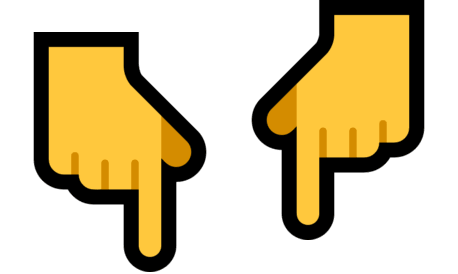 To prevent not finding it next time
To prevent not finding it next time
Editor shares good articles with friends
1. So precious! Over 800 folk remedies, there is no illness that cannot be treated, save for future use!
2. 70 of the most practical health-preserving dietary remedies revealed, too good and too precious, save them to read slowly!
3. Long-term consumption of “liver protection tablets”, is it nourishing the liver or harming the liver? Don’t guess, let the doctor analyze it.
4. 2022 “Blood Sugar Standards” released, different standards for different ages, perhaps your blood sugar is not high.
Like is a form of encouragement Share to spread joy

